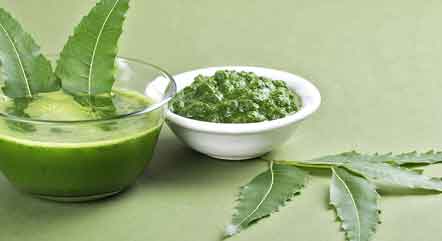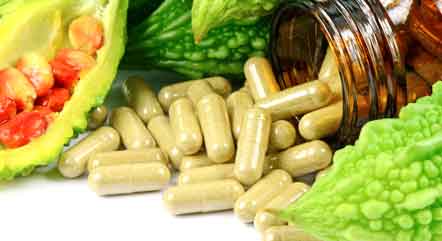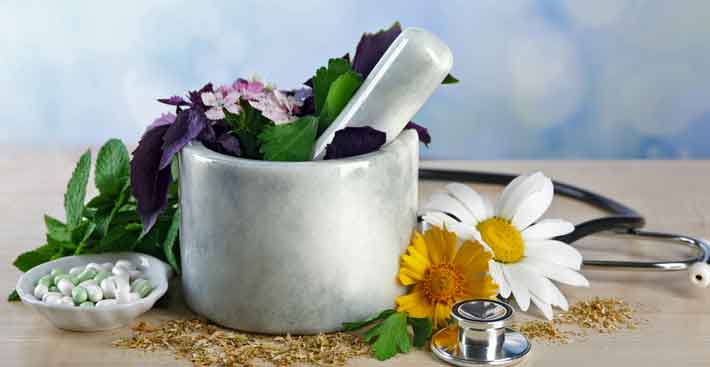Herbs have been used to treat diabetes symptoms for many years. Chinese medicine included ginseng, licorice root and dandelion for centuries. Some herbs are effective in treating the symptoms rather than the root causes of diabetes.
Herbs that strengthen the liver or pancreas help in diabetes treatment. Some of the most widely used herbs are cinnamon, barberry, Pterocarpus marsupium, bilberry, Gymnema silvestre, bitter melon, fenugreek, salt bush, ginkgo biloba, ginseng, allium cepa and allium sativum.

Ginseng is one of the oldest herbs that improves different aspects of the bodily processes. Ginseng can help lower blood sugar levels and also help control blood pressure. If blood pressure is high, ginseng will often help lower it, and if blood pressure is low, then it will sometimes help raise it.
The ginkgo tree is one of the oldest and most tenacious plants around. Ginkgo extract has become very popular in Europe today for its medicinal value. It has been used to improve depression and reduce the risk for heart disease. It helps slow down free radical destruction of healthy tissue and helps protect the lens and macula of the eyes which in turn may help the diabetic with retinopathy.
Bitter melon is also known as Momordica charantia and has long been popular in folk medicine circles for its ability to lower blood sugar levels. Charantia, from bitter gourd seeds, is a hypoglycemic agent while Momordica contains a polypeptide which can assist in helping to maintain a healthy glucose level.
Gymnema silvestre helps in the production of insulin and helps reduce the desire for sweets. It can also assist in lowering the blood sugar for both type 1 and type 2 diabetes.
Pterocarpus marsupium’s gum resin gives the appearance of dried blood and is sometimes called dragon’s blood. Some of its properties have been shown to help prevent pancreatic alpha cell damage and even help regenerate the beta cells which helps to control metabolic processes to assist with balancing the glucose in the blood stream.
Onion and garlic, known as allium cepa and allium sativum, have both proven helpful in treating diabetes by lowering blood sugar levels and also may be beneficial in treating cardiovascular problems.
Fenugreek was once a spice used in Asia and Europe and its seeds used to treat diabetes. Today the fenugreek seed powder helps reduce the amount of fats and glucose in the blood. In East India the fenugreek powder is used like salt for seasoning and natural supplementation.

Bilberry has been used to treat diabetic retinopathy in France for many years. Its active ingredient is myrtillin, which is helpful in preventing eye disorders associated with diabetes and helps improve the functioning of the vascular system.
The herbs for diabetes mentioned above can be helpful in treating some symptoms of the disease while ongoing research into the use of herbs for diabetes may someday result in a cure.
